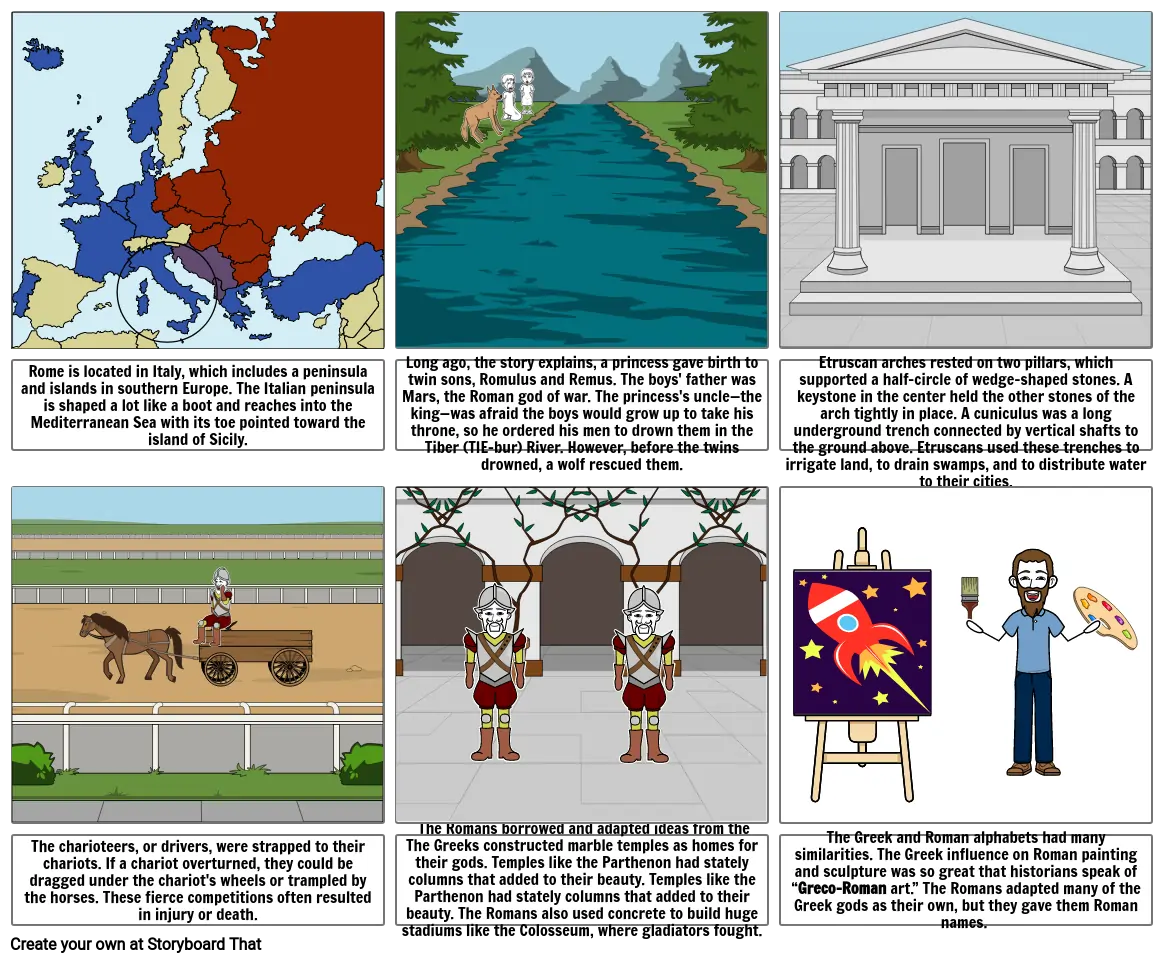Rome

Storyboard Text
- Rome is located in Italy, which includes a peninsula and islands in southern Europe. The Italian peninsula is shaped a lot like a boot and reaches into the Mediterranean Sea with its toe pointed toward the island of Sicily.
- Long ago, the story explains, a princess gave birth to twin sons, Romulus and Remus. The boys' father was Mars, the Roman god of war. The princess's uncle—the king—was afraid the boys would grow up to take his throne, so he ordered his men to drown them in the Tiber (TIE-bur) River. However, before the twins drowned, a wolf rescued them.
- Etruscan arches rested on two pillars, which supported a half-circle of wedge-shaped stones. A keystone in the center held the other stones of the arch tightly in place. A cuniculus was a long underground trench connected by vertical shafts to the ground above. Etruscans used these trenches to irrigate land, to drain swamps, and to distribute water to their cities.
- The charioteers, or drivers, were strapped to their chariots. If a chariot overturned, they could be dragged under the chariot's wheels or trampled by the horses. These fierce competitions often resulted in injury or death.
- The Romans borrowed and adapted ideas from the The Greeks constructed marble temples as homes for their gods. Temples like the Parthenon had stately columns that added to their beauty. Temples like the Parthenon had stately columns that added to their beauty. The Romans also used concrete to build huge stadiums like the Colosseum, where gladiators fought.
- The Greek and Roman alphabets had many similarities. The Greek influence on Roman painting and sculpture was so great that historians speak of “Greco-Roman art.” The Romans adapted many of the Greek gods as their own, but they gave them Roman names.
Over 30 Million Storyboards Created

